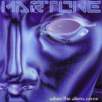Hello readers and welcome back to the Zone Recording. It has been a busy two months with recordings for Martone and Kadabra, compilation tracks for Lion Music, clinics for Vox and Digitech and playing for Parker at the NAMM show.
This month I will discuss in brief detail my top 10 list of steps along the path that I take from song inception until the mixing process. This is one hell of a ride, but I will make it easy for you to understand how I do it. Many people try different methods and all are correct if the final product is cool.
You need a song idea. This tends to be the hardest to get going. I used to sit for countless weeks in the writing room at home to come up with finished songs on the guitar. This was cool but sometimes very time consuming. Now, I will have at least two parts kind of down in my head and on the guitar. Then it is time to go down to the studio.
You need to find the correct tempo for the track first. This is quite important to make it groove correctly. After that I will enter a click track into the sequencer and jam with the click on the parts that I have. If it still feels a little weird, I will fine-tune the tempo until I am satisfied.
I will find a working drum loop to enter in to play with. This gives a more realistic feel when I will be working. I will sample around 5-8 different drum grooves and have them all in the sequencer to fly in and try.
I might have a certain groove for the verse and then a different one for the chorus. (Remember these are just working grooves, and will be replaced later.)
I will lay down rough tracks of what I have at the moment. I do take care to make sure sounds are of a good signal and performance but not overly anal on it. (I might use them if they don't get replaced later.)
Once I have these parts in, I usually can hear another section forming in my head of what should come next. You have to listen to what you have and see in your minds eye what should come next.
I will now organize or arrange the parts with markers in the sequencer.
Examples include 'Entrance', 'Verse', 'Interlude', 'Chorus', 'Verse 2', 'Interlude2'. 'Chorus 2', 'Solo', etc. Now I have some type of structure to the madness. Please realize that most of these sections are rhythm parts and there are no leads or melody yet.
I will jam with the parts now and come up with some working melodies over all of the sections that I have except the solo. I keep that until the end. Once I have a rough idea of the whole track I will fire an mp3 off to Dave Spidel on bass and Daniel Adair on drums to get ready to track these parts shortly. They will work on it and bring ideas to the session.
Time to record bass and drums. After everything is miked up and ready to go, the rhythm section will jam to the track with the click beating like a nail in their foreheads. We will work on the lock of the kick/bass patterns the most to establish the groove with what the rhythm tracks are doing. All input is listened to and worked on. Some stay and some are thrown out the window. Now they jam to the track with fine tuned parts getting ready for a take. We will try different takes and keep mostly everything that is great!
After they leave I usually spend 5-6 hours editing all of the parts to take the best performances and take out all of the clicks and pops.
I go back and listen to everything. I usually find that some of the beginning rhythm tracks need to be redone, either because the sound sucks, or the timing sucks. I will redo all rhythm parts if they are unacceptable. The only reason this happens is when recording to a drum loop; the feel most always changes and you must groove with the new drummer. Sometimes it does not happen, but this is where I get very particular on the tightness of the sound.
Now I jam with the track to put in melodies and solos. This is always fun trying new and interesting sounds. I can usually hear if the sound I have is not working with the track. If it does not, I will pull out another amp and keep going until it is to my liking.
Now I listen to the track and think about what is missing or what needs to be taken away. This is the start of the production end of it. Adding strange samples everywhere, maybe triggering the kick drum. Maybe taking out the real drums in a section and putting a loop back in, etc. All of the production stuff at this stage to get ready for the big mix.
This is my top 10 list.
May the tone be with you!
David Martone is a guitarist from Vancouver, Canada who has released seven solo CDs which showcase his musical diversity and brilliant guitarmanship.
His 2007 CD is entitled "When The Aliens Come", which features a progressive sound incorporating jazz, rock, fusion and metal influences.
